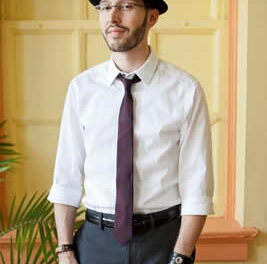Since 1984, Urban Bush Women has brought unique American stories of the African Diaspora to audiences in Brooklyn, across the United States, and around the world. Now celebrating 30 years as a modern dance company, UBW, directed by Jawole Willa Jo Zollar, performed a fabulous new program at Reynolds Industries Theater on the campus of Duke University on February 7; they will repeat the program on February 8. The evening included the world premieres of three (of the four dances). by choreographers Jawole Willa Jo Zollar, Maria Bauman, and Samantha Speis.
By way of introduction, Maria Bauman, Associate Artistic Director, danced the story of UBW. They are not just a dance troupe but leaders of social change through community engagement. Her dance revealed a glorious, fast-paced creation story. Bauman is lithe, beautiful, and articulate. The audience members were captivated like the children of Hamelin Town.
Zollar’s Hep Hep Sweet Sweet was inspired by her family’s story as part of the Great Migration from the South. Steeped in her parents’ involvement with dance and jazz, the choreographer weaves history and myth into her work. And with live music by composer/pianist George Caldwell, the dancers took us along on an historic ride; sometimes frightening, dangerous, funny, and sad – but always with energy and courage. Beginning with “My Feet Can’t Fail Me Now,” recorded by Dirty Dozen Brass Band, and “Where Are You?,” by Dinah Washington (and others), Caldwell interspersed his own music. Daniel Smith created a seamless sound design. Naoko Nagata’s costumes had beautiful reflective material that changed color with the help of Russell Sandifer’s lighting. (A generous woman, Zollar gives credit to the company for the concept, stage, and choreographic direction.) This is an incredible work of art, one I look forward to seeing again.
Dark Swan (2005) by Nora Chipaumire, has been performed by nine men, 21 women, and – on this stage – eight women. With music by Camille Saint-Saëns (“The Swan”), Sam Cooke (“Bring it on Home to Me”), and Vincenzo Bellini (“Casta Diva,” from Norma), the dance is gritty and defiant. It begins with the women facing the rear of the stage, quivering (in great costumes by Omotayo Wunmi Olaiya) but standing tall; at last they exit with heads held high, like women of the Amazon. Stunning jazz vocals gave the piece another worldly feel. This unique, beautiful dance calls for incredible strength and balance. UBW delivers – and then some.
The final piece, Walking with ‘Trane was choreographed by Jawole Willa Jo Zollar and Samantha Speis. Inspired by John Coltrane’s A Love Supreme, George Caldwell composed and performed the exceptional music. The beginning features four dancers, sometimes in pairs, as Caldwell expands on the original four-note motif from the first section, “Resolution.” Stomping with bare feet, dancers accent off-beats. They explore every inch of the stage, sometimes contracting into small groups and then expanding. The dance, like Coltrane’s music, feels abstract, and yet this work reveals the feminine side. The dancers seemed vulnerable – more textured, stronger, and luminous. All but one left the stage. A solo dancer became a silhouette. The audience remained silent, as if in prayer.
Listen to a conversation with choreographer and founder of UBW, Jawole Willa Jo Zollar, and Dr. Thomas DeFrantz, professor of dance and African American Studies, on WUNC’s program The State of Things here.
The program will be repeated on Feb. 8. For details, see the sidebar.












